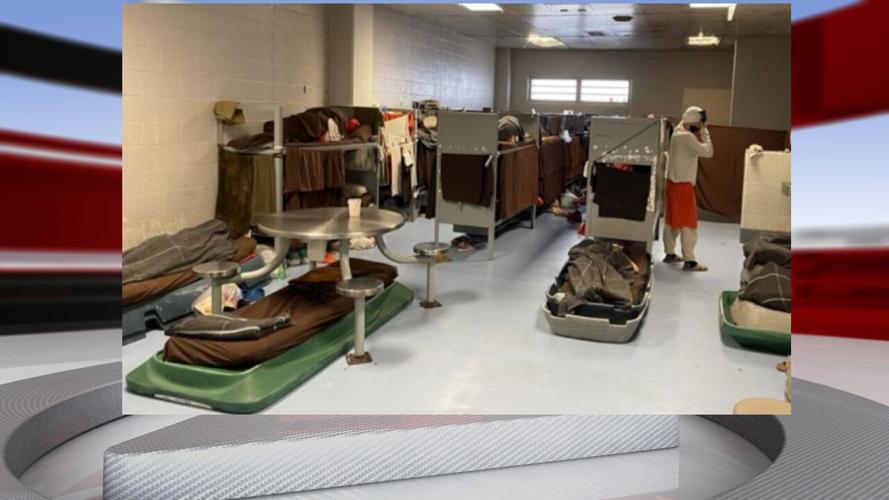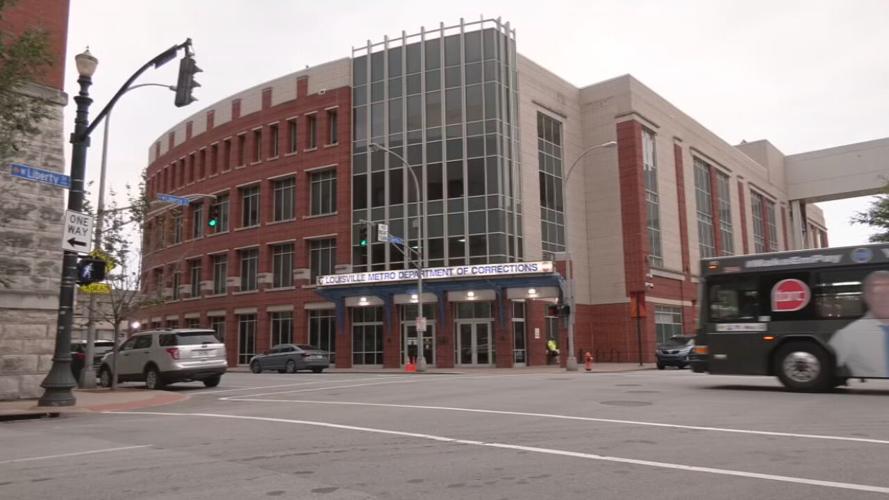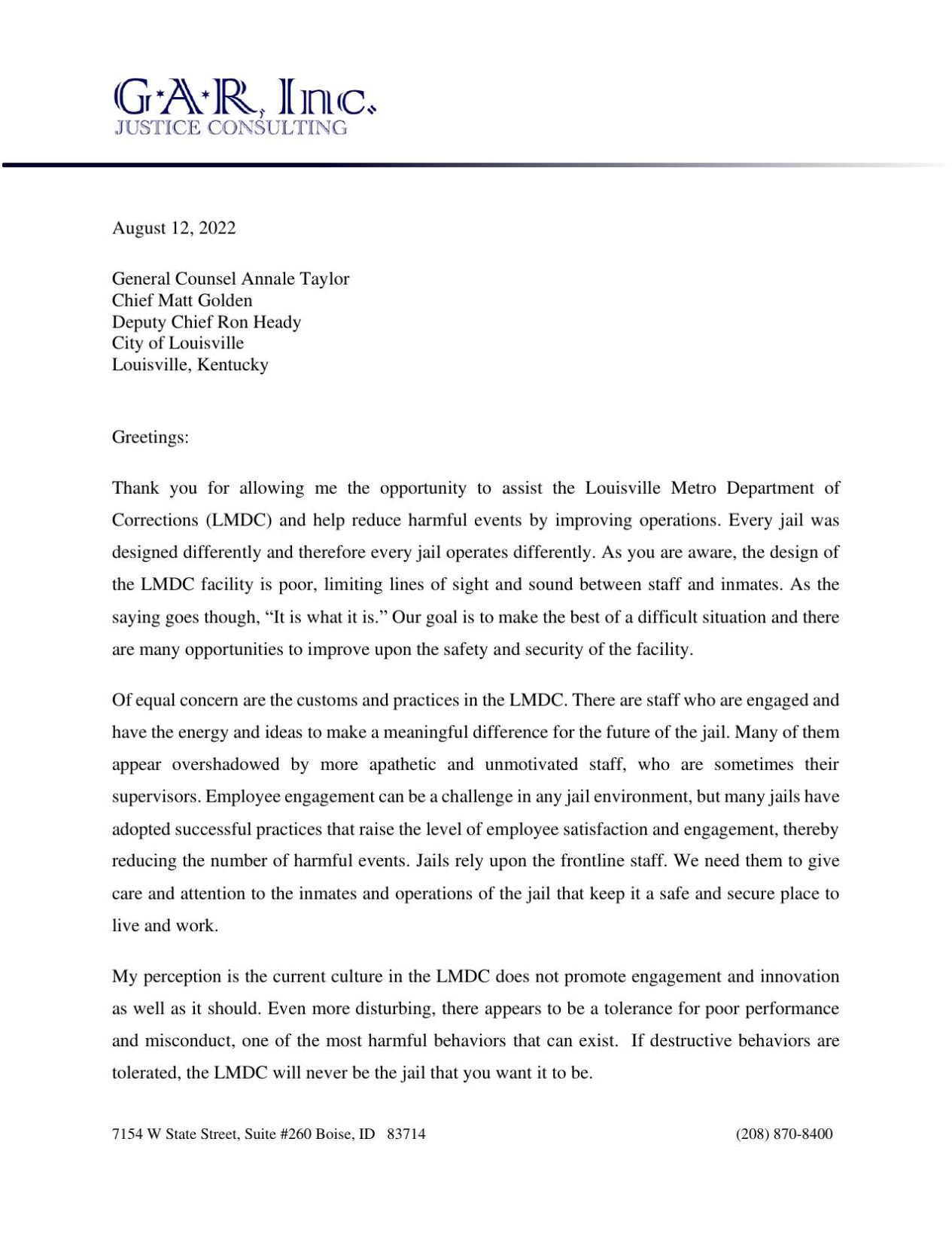LOUISVILLE, Ky. (WDRB) -- In a 20-page report, an outside consultant hired to investigate Louisville's jail calls the facility obsolete, poorly designed, and riddled with "poor practices."
The city of Louisville hired the expert to investigate the jail after a string of deaths over the past year.
Gary Raney, the president of GAR, Inc. Justice Consulting, spent three days at Louisville Metro Corrections, and said he could have received "inaccurate information or made a false assumption" while he was there.
Raney, a former sheriff who has also consulted the U.S. Department of Justice, highlights a slew of recommendations for Louisville's jail in hopes of creating a safer and more secure facility.
"Safety practices that are fundamental to a well-run jail are often absent in the LMDC," he wrote in the report.
The Facility
In his observations, Raney said the jail is not ADA compliant, has dimly lit cells, and has not been maintained well, creating a "disordered environment" for inmates.
Raney also calls the jail "obsolete and poorly designed," and claims that has "contributed to poor practices by staff."
During his time on site, he said he did not find any cells that were "suicide resistant."
"Bars, bunks and fixtures in cells facilitate suicide attempts," Raney said.
Eleven inmates have died inside Louisville Metro Corrections since November 2021, some by suicide, and some in overdoses. The jail does not track suicides, suicide attempts, or uses of force, according to the consulting firm.
The president of Louisville jail's FOP and the ACLU called for action after three inmates died in the facility in the same week last year.
Raney asks officials to add more cameras and mirrors throughout the facility to observe inmates. He also recommends adding more two-person cells, instead of one-person cells.
Life Safety Practices
Inside the jail, Raney said observation checks are "routinely late, poorly conducted and fraudulently logged."
Fraudulent entries are a Class D felony in Kentucky, according to Raney.
Blanket tents are also allowed around bunks, and plastic sheets are used to block the windows of some of the cells, according to photos in the report.
"This not only prohibits the officer from conducting proper observation of the inmate, but it also provides them opportunity for suicide, assault, sexual contact and similar behaviors to go undetected," Raney said.
Raney said a short-term goal should be to require staff to enter every housing unit and interact with inmates at least two to three times a shift.
"The most significant safety practices should be clear lines of sight for all inmates accomplished by the removal of blanket tents, lighting obstructions and window coverings," he said.
Contraband
New body scanners were installed in the jail not long after Jerry Collins took over as the jail's director. In June, Collins said he planned to install two additional body scanners and 197 more security cameras.
Raney said while the new body scanners should reduce contraband coming in from outside of the jail, it will "likely have little impact on the internal flow of contraband between inmates and staff."
"There is a common belief in the LMDC that some contraband is attributable to corrupt staff," Raney wrote in the report. "Currently, staff are supposed to have transparent bags/backpacks but the policy is widely ignored."
Inmates who work inside the facility also have "constant, unsupervised access," according to the report.
"This is unheard of in other jails," Raney said.
Health Care Practices
An inmate that is booked into Metro Corrections does not have a medical screening until 14 days after they are booked into the facility, which Raney said can lead to infecting other staff and inmates with illnesses like COVID-19.
Health care staff also told the consultant firm that they are often not called to conduct medical assessments after uses of force.
"This is concerning and should be changed immediately, if true," Raney said.
Next Steps
Raney said that "many positive changes" can be made inside the jail in a short amount of time, including a "unified vision" and "simple physical improvements."
The jail's long-term challenge will be to change the culture throughout the organization — which could take 18 months to two years, Raney said.
"My perception is the current culture in the LMDC does not promote engagement and innovation as well as it should," he said in his report. "Even more disturbing, there appears to be a tolerance for poor performance and misconduct, one of the most harmful behaviors that can exist.
"Regardless of how long, culture change will be the best investment you can make. Good employees working in a poor facility are more successful than poor employees working in a good facility."
Louisville Metro Council President David James called the review "unsettling."
"Those are things we've been hearing about for quite some time," James said.
Metro Council voted no-confidence in former jail Director Dewayne Clark in February. Collins took over as the new director of the jail in April.
"I think it's up to the mayor to make sure everything that can be addressed in that report in the next 90 days that he has in office can be addressed as soon as possible," James said.
Daniel Johnson, the president of the Metro Corrections FOP, said he disagreed with some of the report's findings. He emphasized that Raney only spent a few days at the jail, and said he only interviewed one person.
Johnson said he's looking forward to a more comprehensive review of the jail, which was ordered by Metro Council, and is expected to be released later this month.
Louisville Mayor Greg Fischer's office released the following statement on Sunday night in response to the report:
Earlier this year, Mayor Fischer initiated an independent review into the policies, practices, training and procedures at Louisville Metro Corrections to be conducted by Gary Raney, an independent expert in jail deaths and a retired law enforcement official who has served as Vice Chair of the Board of the National Institute of Corrections and a U.S. Department of Justice consultant to criminal justice organizations around the country. The report has been completed and the Mayor and his team are reviewing the findings for continued performance improvement opportunities. The report has also been shared with Metro Council. In the meantime, Director Collins and his team have been focused on making changes to improve the immediate needs of the jail around suicide prevention, drug interdiction, and mental health.
WDRB has reached out to officials at Metro Corrections for comment.
Read the full report below.
This story may be updated.
Related Stories:
- Fischer outlines plan for oversight, independent review of Louisville Metro Corrections
Man back behind bars after allegedly trying to get drugs to inmate at Louisville's jail
Copyright 2022 WDRB Media. All Rights Reserved.

















